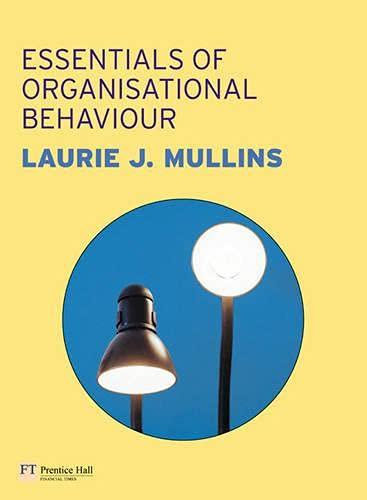The corporate scandals in the US have stimulated a frenzy of activity in business schools around the
Question:
The corporate scandals in the US have stimulated a frenzy of activity in business schools around the world. Deans are busy pointing out how much their curricula focus on business ethics. New courses on corporate social responsibility are being developed. Old, laudatory case studies on Enron and Tyco are being rewritten to show how bad their senior managers were. In earnest seminars and over lunch, faculty members are asking themselves what more they must do.
Business schools do not need to do a great deal more to help prevent future Enrons; they need to stop doing a lot that they currently do. They do not need to create new courses; they need to stop teaching some old ones. But first, faculty members need to own up to their own role in creating Enrons. It is their ideas that have done much to strengthen the practices they are all now so loudly condemning.
For decades, one of the most popular MBA courses at Harvard was taught by Michael Jensen, the creator of agency theory. This course taught students why, given the fundamental nature of ‘man’, managers could not be trusted to do their job – which, of course, was to maximise shareholder value – and how to overcome ‘agency problems’ by aligning managers’ and shareholders’
interests and incentives. Making large stock options an important part of managers’
compensation was clearly one of the most effective ways for achieving such alignment.
At Berkeley and Stanford, business students have been taught the transaction cost economics developed by Oliver Williamson. In essence, this argues that the only reason companies exist is because their managers can exercise authority to ensure that all employees do what they are told.
Managers must ensure that staff are tightly monitored and controlled – these courses described this as the exercise of ‘fiat’ – while creating sharp, individual-
level performance incentives.
And wherever in the world one studies management, there is Michael Porter’s theory of strategy. This asserts that to make good profits, a company must actively compete not only with its competitors but also with its suppliers, customers, regulators and employees.
Profits come from restricting or distorting competition, bad though this may be for society. It is one of the most important tasks that managers are paid to do.
It is not only MBA students who have, for decades, learnt these theories. Many thousands of executives have been taught the same lessons on business courses. Even those who never attended a business school learnt to think this way because these theories were in the air, legitimising some managerial actions and delegitimising others and shaping the intellectual background against which day-to-day decisions were made. Is it any surprise, then, that executives in Enron, Global Crossing and scores of other companies granted themselves excessive stock options, treated their employees badly and took their customers for a ride when they could?
Much of the problem has arisen from the excesses of business school academics in pretending that business is a science. Not only economists but also those in areas such as marketing and organisational behaviour increasingly treat business as if it were a kind of physics, in which individual intentions and choices either do not play a role or, if they do, can safely be taken as being determined by economic, social and psychological laws.
The problem is that, unlike theories in the physical sciences, theories in the social sciences tend to be self-fulfilling.
A theory of sub-atomic particles does not change the behaviour of those particles.
A management theory, if it gains enough currency, changes the behaviour of managers. Whether right or wrong to begin with, the theory becomes ‘true’ as the world comes to conform with its doctrine.
This is why it is nonsense to pretend that management theories can be completely objective and value-free. Even if the theorists pretend to be objective, the subjects and users of the theory cannot.
By incorporating negative and highly pessimistic assumptions about people and institutions, pseudo-scientific theories of management have done much to reinforce, if not create, pathological behaviour on the part of managers and companies. It is time the academics who propose these theories, and the business schools and universities that employ them, acknowledged the consequences.
Your tasks
Discuss critically the extent to which you:
1 Believe that business schools need to change their curricula and stop teaching old concepts.
2 Support Michael Porter’s theory of strategy.
3 Accept the criticisms of management theories.
Step by Step Answer:






